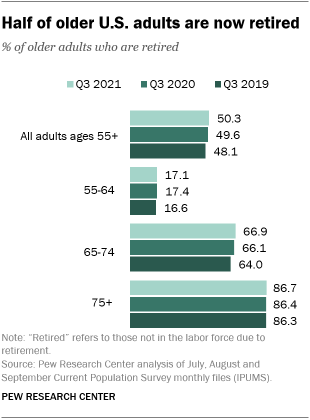When’s enough – enough?
Not putting great thought into this question is a common but critical mistake.
Creating wealth is a simple way of keeping score. Knowing when to quit is a more nuanced decision.
There’s an old parable about a vacationing New York businessman in conversation with a “poor” Mexican fisherman.
The fisherman describes his daily routine. It entails working a few hours a day. The remainder involves sipping wine in the sun and jamming with his friends. The Type-A businessman reacts in horror to the productivity deficit.
“Why not work harder and invest capital in acquiring more boats and hiring others to fish? You could make a ton of money and retire early.”
The fisherman replies –” What would I do when I retire?”
The businessman quickly retorts – “You could spend the remainder of your days drinking wine in the sun and playing music with your friends.”
We need more fishermen and fewer Type-A businesspeople in our retirement plans. Never underestimate – less is more.
Mr. Money Mustache touches on this in a recent post. He relays some all too common pushback on the subject of retirement.
“I think I’m close to having enough money to jump into early retirement, but not quite.”
or
“So I’m just working one more year and starting one more side hustle and buckling down extra hard to be more certain.”
If Only isn’t a plan, it’s a death sentence.
Certainty is the killer of dreams.

Why do people continue working unsatisfactory jobs when their possibility of running out of money is essentially zero? We’re not talking about abandoning productivity and becoming part of the idle rich. The genuine concern is for those working only for money even though they don’t need it.
The answer falls under the category of – I’m struggling with the real meaning of life.
The fallacy of life’s purpose residing in the future takes root. Believing some target date offers a world devoid of problems is a poor excuse for sacrificing the current moment.
It’s human nature to focus on threats we can see rather than those we can’t.
Bill Gates worked 17 straight years without taking a day off. Often rising at 6 AM and coming home at midnight, only to start again. He became a multi-billionaire but was the price paid by his family worth it? On his death bed, he’s sure to ponder this question.
In reality, this type of thinking is a fruitless way of controlling an uncontrollable future.
John Maynard Keynes called this “purposiveness.”
The purposive man is always trying to secure spurious and delusive immortality for his actions by pushing his interests in them forward into time. He does not love his cat, but his cat’s kittens; nor in truth the kittens, but only the kittens’ kittens, and snd so on forward forever to the end of cat-dom.
Never cashing out secures delusional immortality. The reality is the opposite. Missing one’s life is no consolation prize for fear of death.
Bequeathing your dreams as an inheritance to an aging body and mind is a low probability bet. A concentrated wager on uncertainty may be riskier than quitting your job if you have the means.
Standing up to fears of mortality may provide surprising results.
"A taste of freedom can make you unemployable." @naval
— Navalism (@NavalismHQ) August 1, 2022
Listen to the fisherman and ignore the tunnel vision of the businessman. One boat is enough.
Cashing out when you’re able might be the safest bet you’ll ever make.





